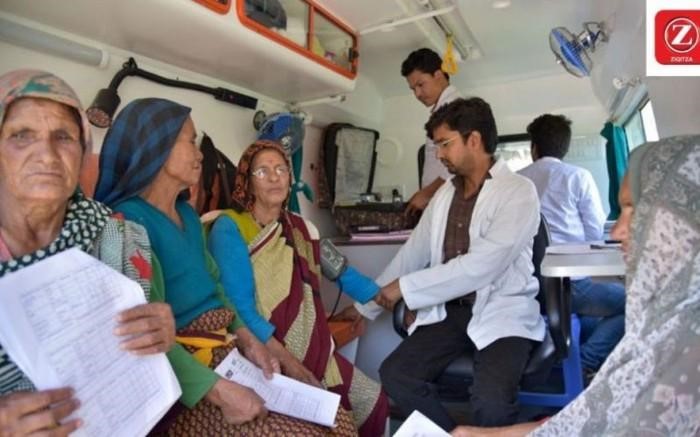The Indian public healthcare system is severely lacking in healthcare facilities, particularly in rural areas where the population-to-infrastructure ratio is skewed. The internet and mobile apps put healthcare in the hands of consumers, but there is no personal or human touch. Although healthcare awareness is growing in the urban population, clinical encounters are mostly reactive. The patient only visits the clinic or hospital in the event of an illness or an event. Ziqitza Healthcare writes that there is a huge opportunity to bring equity in healthcare delivery to rural and urban consumers. This can be accomplished by healthcare providers and insurers across India implementing disruptive ideas in healthcare services. This equity can be achieved through a proactive approach to wellness, such as the deployment of mobile medical units, which reduces the burden on clinicians and hospital personnel.
According to Ziqitza Healthcare ltd, one of India’s leading emergency medical service providers, mobile health services are a response to reaching populations living in remote, difficult places and communities cut off from mainstream services due to geography and climatic conditions. In order to reach these underserved communities, the Ministry of Health and Family Welfare (MoHFW) has made significant investments in mobile medical units (MMUs). According to Ziqitza, one major initiative under the NRHM was the operationalization of Mobile Medical Units (MMUs) to deliver a variety of health care services for populations living in remote, inaccessible, un-served, and underserved areas, with the main goal being to bring healthcare service delivery to these populations’ doorsteps. With the introduction of NUHM, MMU services are also intended to provide fixed services in areas where there is no infrastructure and to serve the urban poor and vulnerable people.
MMU services are intended to meet the technical and service quality standards for a Primary Health Centre by providing a suggested package of services in 12 theme areas, including Maternal Health, Child Health, Mental Health, and Community Health. MMUs provide free services in the areas of neonatal and infant health, child and adolescent health, reproductive health and contraceptive services, management of chronic communicable diseases, basic OPD care (acute simple illnesses), management of common non-communicable diseases.
Mobile medical units, according to Ziqitza Rajasthan, are thus frequently established to ensure accessible healthcare and a decentralized approach to healthcare. Mobile Medical Units have aided in the mobilization of healthcare to “conduct screenings, basic diagnosis, and, on occasion, complex medical treatments closer to people’s homes.” These units provide critical services. With little cost and fewer operational bottlenecks, the same is practically imaginable across all terrains, communities, and socioeconomic groups.
According to Ziqitza Limited, mobile health clinics provide high-quality care at a lower cost than more traditional healthcare delivery methods. Mobile health clinics help patients avoid costly ER visits during emergencies, saving them money. Each mobile clinic is estimated to save 600 emergency room visits per year.
Despite the notion that having access to healthcare is a fundamental human right, rural India’s inadequate service is largely due to a lack of suitable infrastructure, access to vital pharmaceuticals, and skilled practitioners. ZHL Rajasthan has taken the initiative to make improvements by offering mobile health care services in rural areas. These units place a focus on the need for emergency medical care, access to high-quality healthcare, and illness prevention.
Ziqitza Limited Rajasthan has managed over 150 MMUs in Jammu and Kashmir, Kerala, and Madhya Pradesh, all of which have extremely diverse populations. The medical staffs at Ziqitza Health Care Limited’s MMUs is trained to recognize the symptoms of health-related ailments, perform a basic diagnosis of common diseases, prescribe medication, and refer patients to specialized clinics if further medical complications arise. They are also equipped to offer free medical examinations. The availability of these vans enabled the rural population to raise awareness, ensure preventive vaccination, and promote regular medical check-ups.


